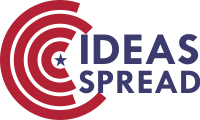Research on the Innovation of Management and Service Models of University Libraries in the Information Age
Abstract
With the advent of the information age, university libraries, as core institutions for knowledge management and information services, face unprecedented challenges and opportunities. The rapid development of information technologies, such as big data, cloud computing, and artificial intelligence, provides a broad space for the innovation of university library management and service models. This paper aims to explore the innovative paths of university library management and service models under the background of informatization, analyzing the profound impact of information technologies on library management, service efficiency, resource integration, and user experience. First, the article reviews the impact of the information age on university libraries, pointing out the limitations of traditional management and service models. It then analyzes the necessity of innovating management and service models through informatization, proposes directions for intelligent, personalized, and digitalized services, and discusses the practical applications of information technologies in resource management and services. Finally, the paper summarizes the potential challenges faced by university libraries in the informatization transformation process and proposes corresponding innovative paths and implementation strategies. The study shows that informatization can not only improve the management efficiency of libraries but also provide more personalized and efficient services to students and faculty, driving university libraries towards a more intelligent and modern direction.
References
[2] Lee, P.-C. (2021). Technological innovation in libraries. Library Hi Tech, 39(2), 574-601. https://doi.org/10.1108/LHT-07-2020-0163
[3] Keshavarz, H., & Norouzi, Y. (2022). A maturity model for digital information management in university libraries: A design science study. International Information & Library Review, 54(4), 299-314. https://doi.org/10.1080/10572317.2021.2022388
[4] Khan, A. U., Imran, M., Akhtar, T., Sarfraz, M., & Khan, A. A. (2023). Determining the impact of technological modernization and management capabilities on user satisfaction and trust in library services. Global Knowledge, Memory and Communication, 72(6/7), 593-611. https://doi.org/10.1108/GKMC-06-2021-0095
[5] Etebu, A. T., & Zacchaeus, C. M. (2020). Innovative library services (ILS) in Nigeria: Challenges and way forward. International Journal of Research and Innovation in Social Science, 4(7), 87–94.
[6] Singha, A., & Das, R. K. (2021). Redesigning librarianship in the digital era: A theoretical model for academic libraries. International Journal of Creative Research Thoughts, 9(12), 1499–1506.
[7] Qian, X., Liu, Y., & Wang, X. (2020). Application research on service innovation and entrepreneurship education in university libraries and archives. International Journal of Computational Science and Engineering, 22(1), 96-106. https://doi.org/10.1504/IJCSE.2020.107258
[8] Gunapala, M., Kessy, E., & Thomas, J. (2020). Managing change in university libraries in the 21st century: An Australian perspective. Journal of the Australian Library and Information Association, 69(2), 191-214. https://doi.org/10.1080/24750158.2020.1756598
[9] Mabunda, T. T., & Du Plessis, T. (2022). Knowledge management as a change enabler in academic libraries in the digital age. South African Journal of Information Management, 24(1), 1-10. https://doi.org/10.4102/sajim.v24i1.1450
[10] Rafi, M., Ming, Z. J., & Ahmad, K. (2022). Estimation of the knowledge management model for performance measurement in university libraries. Library Hi Tech, 40(1), 239-264. https://doi.org/10.1108/LHT-11-2019-0225

This work is licensed under a Creative Commons Attribution 4.0 International License.
Copyright for this article is retained by the author(s), with first publication rights granted to the journal.
This is an open-access article distributed under the terms and conditions of the Creative Commons Attribution license (http://creativecommons.org/licenses/by/4.0/).









1.png)














